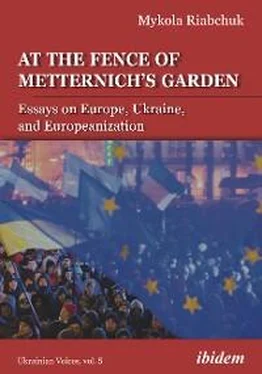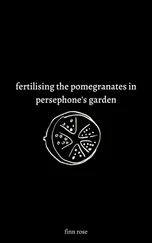One need not be an expert in critical discourse analysis to figure out that such a labeling is highly harmful in both political and cultural terms for all the parties involved. First, it mystifies the reality. It features the Russian/Soviet imperial legacy and post-imperial influence as the only or the main factor that determines virtually everything in today’s (under)development of post-Soviet republics. In some cases this factor is really important, in other cases many more historical and present-day variables are involved that, unfortunately, are neglected or undermined. Secondly, the ‘Eurasian’ labeling implicitly encourages Russian imperial feelings and great-power politics, endows it with some international legitimacy, and discursively resonates with the most chauvinistic, crypto-fascist tenets of today’s Russian ‘neo-Eurasianists’. And thirdly, it discursively excludes all the European nations of the former Soviet empire from Europe and effectively marginalizes pro-European forces in all these countries (including Russia itself), making them easy prey for Russian/pro-Russian profoundly anti-Western nationalists.
In other words, the term ‘Eurasia’ lacks not only precision (which is hardly achievable in any taxonomy) but also impartiality—and this is a very serious flaw in international politics, especially where it plays into the hands of a former empire that still seeks to re-establish its neocolonial dominance. Indeed, the main thing that the ‘Eurasian’ countries have in common (at least in the European realm of the former Soviet empire) is their profound internal divide between pro-Western and anti-Western forces—a divide that reflects not only opposite geopolitical orientations but also systems of values, historical narratives, and, still worse, national identities.
In this regard, Ukraine, and Moldova, and Belarus can be considered as ‘not-quite-European’. There is nothing wrong in admitting this fact—as an important factor that precludes their European integration and, probably, modernization. But labeling them ‘Eurasian’ is another matter. It means, in fact, interference in domestic ideological infighting and taking the side of ‘Eurasian’, pro-Russian, profoundly anti-European forces. It helps to shift a tough balance between rival parties in the ‘Eurasian’, anti-Western direction. No alternative to the term ‘Eurasian’ is perfect but, in most cases, the term ‘post-Soviet’ looks more precise and far more neutral than the term ‘Eurasian’.
The power of labeling, othering, and exclusion inherent in presumably neutral geographic terms was noticed long before the classical studies by Edward Said, Larry Wolff, or Maria Todorova were published. Milan Kundera and his colleagues from Poland, Hungary, and Czechoslovakia had desperately rebelled against the term ‘Eastern Europe’ as allegedly excluding them from Europe as a family of free nations and placing them implicitly into a legitimate Soviet sphere of influence. ‘Eastern Europe’ became like a stigma that signified the inferiority of the region, its primordial backwardness, lack of political freedom, civic liberties, rule of law. To escape from this dangerous, disreputable place they invented the term ‘Central East Europe’, which included primarily Poland, Hungary and Czechoslovakia but was embraced also in Romania, Yugoslavia, West Ukraine, and the Baltics by local dissenting intellectuals.
It was a just attempt to overcome an exclusion imposed upon them by the dominant West European discourse. But their own discourse proved to be equally exclusivist vis-à-vis other East European neighbors. Slovenians claimed they had nothing to do with the ugly ‘Balkans’ because they had always been Central European. Croatians followed suit by becoming ‘Mediterranean’. The Balts declared they were ‘Nordic’ and certainly should not belong to the post-Soviet club since they had been occupied by the Soviets (as if Georgia or Ukraine or anybody else had joined the USSR voluntarily). All this made the renowned Canadian historian John-Paul Himka quip: “What’s the new geography? Western Europe, Central Europe and … Eurasia. Europe has a West, it has a Center, but holy cow! it has no East. Foucault would have loved this geographical gaping wound.”
Today [2010], as all the non-Soviet countries of the former Communist block have been either admitted to the EU or placed on a firm track towards membership, the process of othering and discursive exclusion/inclusion has changed its forms but not its essence. ‘Eurasianism’, in this respect, can be defined in a Saidian way as an attempt to control and manipulate the so-called ‘Eurasia’, which is merely a code-word for the post-Soviet republics. Russian ‘Eurasian’ discourse is aimed primarily at dominance over and re-integration of the post-Soviet space. Western ‘Eurasian’ discourse is aimed primarily at marginalization of the post-Soviet republics, their exclusion from the European project, and placing them within the Russian sphere of influence and, presumably, responsibility.
Ignorance might be one reason for such a Western approach. Neither Ukraine, nor Georgia, nor Belarus have ever existed on the mental maps of the Europeans. All these nations have been always perceived through the lenses of Russian historical myths broadly accepted in Western media and academia as ‘scientific truths’. The imperial likeness of big Western powers has also facilitated their uncritical acceptance of Russian imperialistic views of the ‘near abroad’. The alternative views and voices of the subaltern nations have been silenced, marginalized, or discredited as ‘nationalistic’.
Yet Realpolitik and, in particular, a notorious Russia-first policy pursued by major West European countries seem to play a decisive role in the exclusion of the post-Soviet nations of Eastern Europe from ‘European’ discourses and ceding them to the Moscow-centered discourse of ‘Eurasianism’. Perhaps the clearest, even though the most cynical, example of such reasoning comes from a staff columnist of the influential Asia Times daily, one Spengler:
The West has two choices: draw a line in the sand around Ukraine, or trade it to the Russians for something more important. My proposal is simple: Russia’s help in containing nuclear proliferation and terrorism in the Middle East is of infinitely greater import to the West than the dubious self-determination of Ukraine. The West should do its best to pretend that the ‘Orange’ revolution of 2004 and 2005 never happened, and secure Russia’s assistance in the Iranian nuclear issue as well as energy security in return for an understanding of Russia’s existential requirements in the near abroad […] Russia has an existential interest in absorbing Belarus and the Western [sic] Ukraine. No one cares about Belarus. It has never had an independent national existence or a national culture; the first grammar in the Belorussian language was not printed until 1918, and little over a third of the population of Belarus speaks the language at home. Never has a territory with 10 million people had a sillier case for independence. Given that summary, it seems natural to ask why anyone should care about Ukraine. That question is controversial; for the moment, I will offer the assertion that partition is the destiny of Ukraine” (August 19, 2008).
Virtually the same ideas, even though in a subtler form, can be found in numerous Western reports on political developments in Ukraine (as well as in Belarus). Neither of them is treated as a really sovereign nation, with its own particular interests that might be different from or even opposite to those of its former colonial master: “From the Baltic to the Black Sea, Russia is faced with NATO or would-be NATO states and, as a much invaded country, gets nervous about the future. Paradoxically in this situation the best result for the people in both countries [Belarus and Ukraine], at least in the short term would seem to be a vote [in forthcoming elections] against the Western tendency” ( French News, March 2006).
Читать дальше












